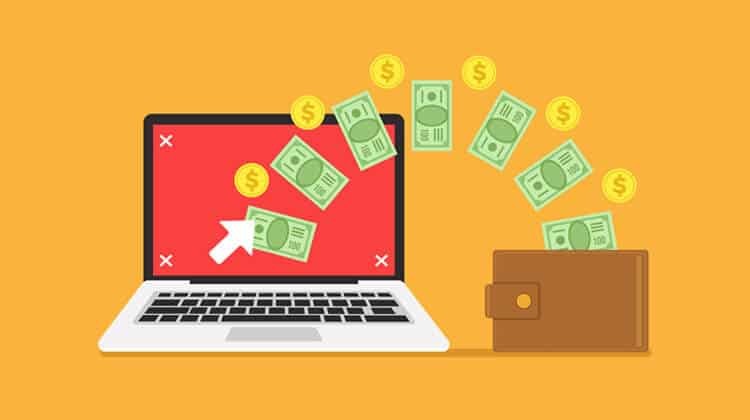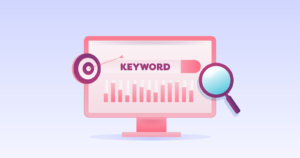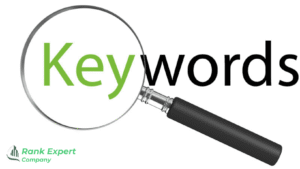Cost-per-click (CPC) is one of the most essential metrics in digital advertising, especially for brands looking to maximize ROI from search engine marketing (SEM) and display ads. Whether you’re running a Google Ads campaign or exploring Bing Ads, understanding CPC can help you manage your ad budget more effectively and attract high-quality traffic to your website.
In this article, we’ll break down what CPC is, how it works, why it matters for advertisers, and how you can reduce your average CPC over time. We’ll also explain how CPC fits into broader advertising models like PPC (pay-per-click) and CPM (cost per mille).
What Is Cost-Per-Click (CPC)?
Cost-per-click (CPC) is a digital advertising pricing model in which advertisers pay a specific amount every time a user clicks on their ad. Rather than paying for impressions or conversions directly, CPC ensures you’re only charged when someone takes action—by clicking your ad.
Formula for Calculating CPC:
CPC = Total Advertising Cost / Number of Clicks
For example, if you spend $200 on a campaign and receive 100 clicks, your CPC is $2.00.
Why Is CPC Important?
CPC plays a key role in measuring the efficiency and profitability of paid advertising campaigns. A high CPC may indicate tough competition for keywords or poor ad targeting, while a low CPC suggests efficient use of your ad spend.
Key Benefits of Monitoring CPC:
- Budget control: Track spending accurately per click.
- Campaign performance: Evaluate ROI and cost-effectiveness.
- Keyword optimization: Adjust keyword bids based on value and competition.
- Ad Rank improvement: Balance quality score and max bid to rank better.
CPC vs. Other Advertising Models
To better understand CPC, it’s important to differentiate it from other common models:
| Model | Description | When to Use |
|---|---|---|
| CPC (Cost-per-click) | Pay only when someone clicks | Best for performance-driven goals like traffic or conversions |
| CPM (Cost per mille) | Pay per 1,000 impressions | Ideal for brand awareness campaigns |
| CPA (Cost per acquisition) | Pay when a conversion happens | Useful for lead generation or sales |
What Factors Affect CPC?
Several elements determine your final CPC in platforms like Google Ads:
- Keyword Competition – More advertisers bidding on a keyword usually drives up CPC.
- Quality Score – Google evaluates your ad relevance, landing page experience, and expected CTR. A higher score often leads to lower CPC.
- Ad Rank – Combines your max CPC bid and quality score.
- Targeting Options – Demographics, device types, and locations can all influence CPC.
- Bidding Strategy – Whether you’re using manual CPC or automated bidding, your strategy impacts cost efficiency.
How to Reduce CPC in Google Ads
Lowering your cost-per-click means getting more traffic for less money. Here’s how:
1. Improve Your Quality Score
Focus on creating relevant ad copy, optimized landing pages, and high click-through rates.
2. Use Long-Tail Keywords
Target low-competition keywords that are more specific. These typically have a lower CPC and higher conversion rate.
3. Geo-Targeting and Device Bidding
Exclude underperforming locations or device types to reduce wasted spend.
4. Optimize Ad Extensions
Add sitelinks, callouts, and structured snippets to increase ad engagement and reduce CPC.
5. Test Multiple Ads
Run A/B tests on ad variations to identify which versions perform best at the lowest cost.
Real-World Example of CPC in Action
Let’s say a law firm is running a Google Ads campaign targeting the keyword “personal injury lawyer Los Angeles.” Due to high competition, the average CPC could be over $100. By narrowing the targeting to “affordable personal injury attorney LA” and improving ad relevance, they may reduce CPC to $35 while still attracting quality leads.
CPC in Social Media Ads
CPC isn’t limited to search engines. It also plays a big role in social media advertising on platforms like:
- Facebook Ads
- Instagram Ads
- LinkedIn Ads
- Twitter/X Ads
Each platform calculates CPC slightly differently, but the core principle remains: advertisers pay only when someone clicks.
CPC in Programmatic and Display Advertising
In programmatic advertising, CPC helps advertisers automate bidding across multiple ad exchanges in real-time. CPC metrics can vary based on audience targeting and placements but are crucial for measuring efficiency in display ad campaigns and retargeting efforts.
Final Thoughts: Is CPC Right for You?
If your goal is to drive targeted traffic and pay only for results, cost-per-click advertising is a powerful solution. However, success with CPC isn’t just about spending more—it’s about being smarter with your keywords, bidding strategy, and ad relevance.
Monitor your CPC regularly, experiment with different approaches, and stay updated on trends in search engine marketing (SEM) and performance marketing. With the right strategy, CPC can become one of your most effective marketing tools in 2025 and beyond.
For More Information Visit Our Homepage:



